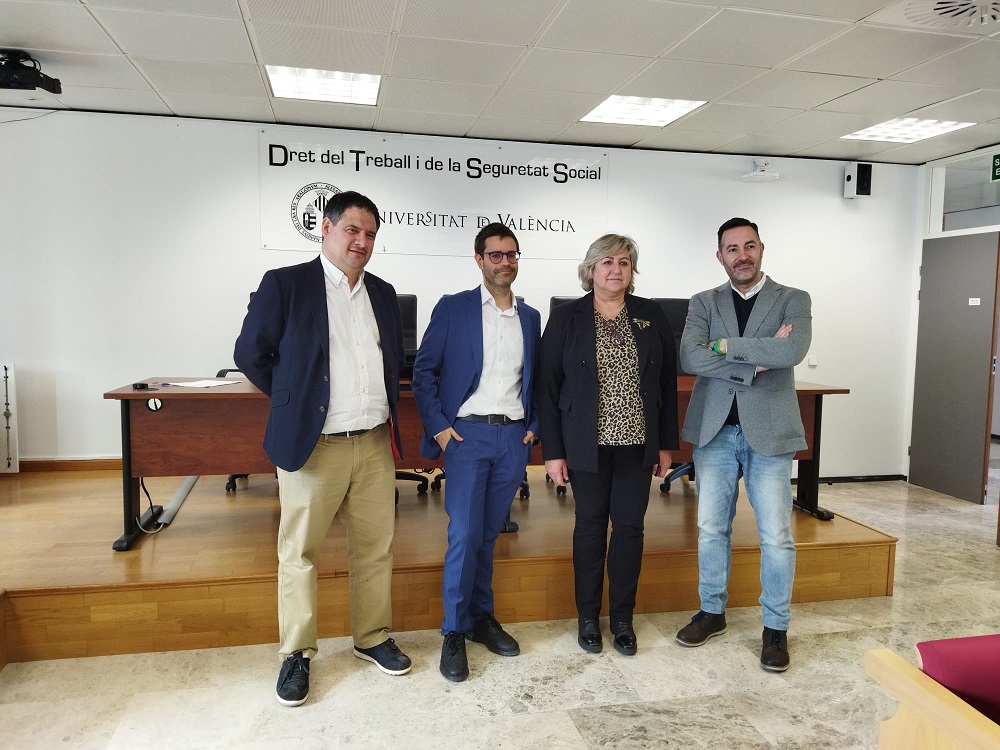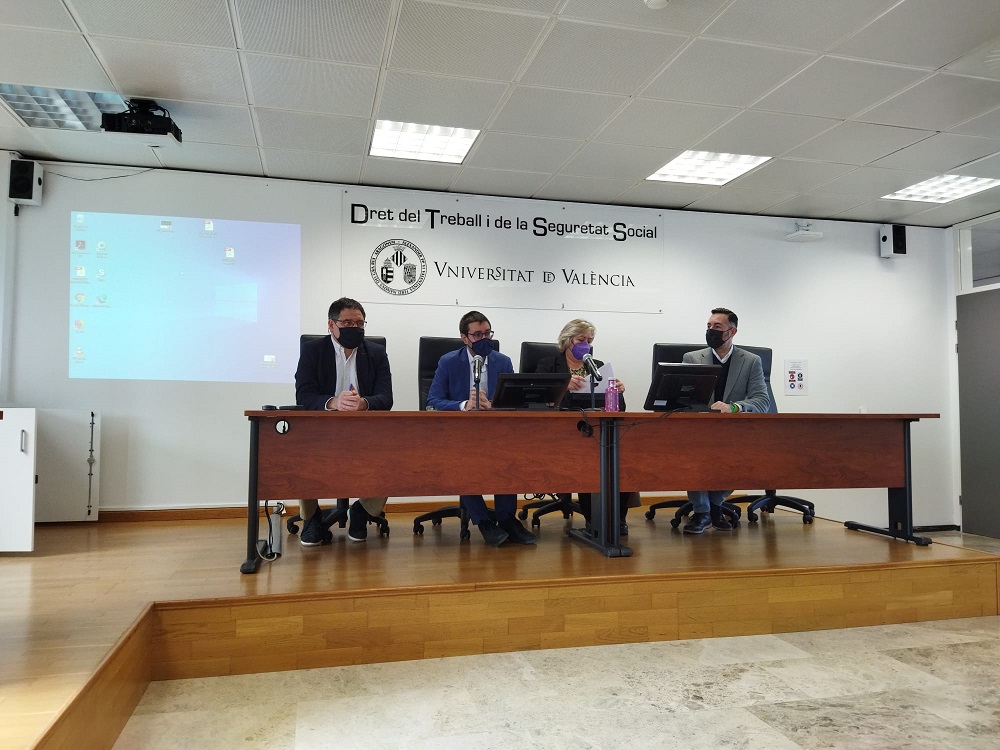This Thursday, the Faculty of Law at the Universitat de València (UV) hosted a conference on mental health in the workplace by Óscar Pérez Zapata, professor at the Comillas Pontifical University and author, alongside Gloria Álvarez (Carlos III University of Madrid), of the article “Empleo, trabajo y riesgos para la salud mental: análisis y propuestas de intervención” [Employment, work and mental health risks: analysis and proposals for intervention].
The conference was presented by Elvira Ródenas, Director-general of Labour, Welfare and Occupational Safety of the Valencian Government, and Adrián Todolí, professor of Labour and Social Security Law at the UV and co-director of the Chair of Collaborative Economy, supported by the Las Naves Foundation of Valencia. The conference was also moderated by Carlos Navarro, a journalist from eldiario.es of the Valencian Community.
Nevertheless, the main presentation was given by Pérez Zapata, lecturer in Business Organisation and doctor in Sociology, who focused on the influence of work intensification or effort on the mental health of workers. "We always think that there are two spheres that produce burnout: effort and time. Currently, debates focus a lot on time, but we think that they should also take into account the effort factor," said the professor. In this regard, he mentioned, for example, the proposal for a four-day working week: "a priori it sounds wonderful, but we need to know how it affects us. If we are expected to increase efforts due to shorter working hours, it is not worth it for us.
Pérez Zapata also stated that it is necessary to establish a list of occupational causes that negatively affect mental health, but also to assess how much weight they have at a general level. In this line, work overload is the first factor that most influences the mental health of employees, followed by emotional demands and precariousness.
Thus, the research proposes three main actions that could reduce the incidence of mental ill-health among female and male workers by 60% and 80%, respectively. One associated with regulating work rhythms, workloads and demands; another related to reducing precariousness linked to insufficient wages, fear of asking for better conditions or reduced weekly working hours; and finally, an action focused on improving social relations, prioritising conflict resolution.

|

|








